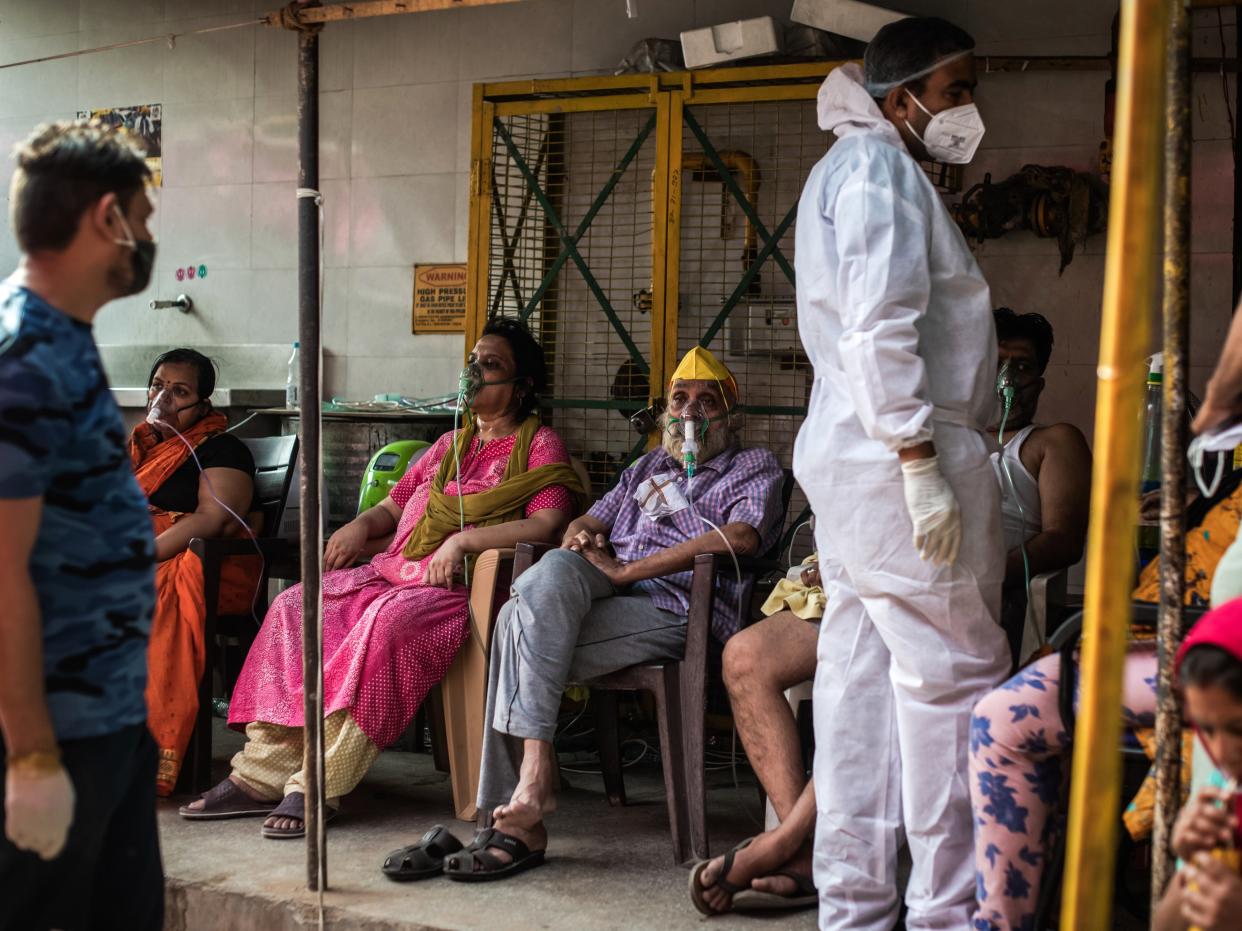India covid crisis: Business leaders and advisers plead with government to impose national lockdown

India’s government is facing calls from health experts, business leaders and the judiciary to impose a national lockdown to curb the record-breaking levels of coronavirus infections currently pushing the nation’s health system beyond the brink.
Prime minister Narendra Modi – who has been accused of complacency ahead of the devastating second wave currently engulfing India – insisted on 20 April that state lockdowns should be used only as a “last resort”, with the country’s economy still in tatters after its nationwide shutdown last year.
But after India became the first country to record 400,000 new cases in a single day on Saturday, with hospital beds, oxygen and medical supplies already in fatally short supply, The Indian Express reported that members of the government’s Covid-19 taskforce – whose chair reports directly to Mr Modi – are now “pushing hard” for a second national lockdown.
“The Covid-19 task force is trying to say this very aggressively for the last few weeks. That we should tell the people at the top that we should have a lockdown,” the paper cited one of its members as saying.
“We are looking at the wrong end of tunnel,” the anonymous individual reportedly added. “Healthcare infrastructure cannot expand indefinitely, oxygen supplies have been ramped up but still there is shortage given the case load. It’s clear that we have to decrease the cases.”
Also on Sunday, local media reported that India’s Supreme Court passed an order which called on central and state governments to “consider imposing a lockdown to curb the virus in the second wave in the interest of public welfare”.
Even business leaders expressed a similar plea, with Confederation of Indian Industry (CII) president Uday Kotak urging authorities to take the “strongest national steps” and curtail economic activity to save lives.
“Given the current pandemic situation, safeguarding lives is of utmost priority and nationwide maximal response measure at the highest level is called for to cut the transmission links,” Mr Kotak said in a statement on Sunday.
“The healthcare infrastructure and supply build-up are being undertaken on emergency basis by the governments at the centre and states, but will take time. At this critical juncture when toll of lives is rising, CII urges the strongest national steps including curtailing economic activity to reduce suffering.”
Warning that despite healthcare and frontline workers giving their best efforts to tackle the influx of patients, “it may not be possible to manage escalating caseloads with the present medical talent availability”, he urged authorities to “heed expert advice on this subject – from India and abroad”.
His comments came after the United States’ top infectious disease expert, Dr Anthony Fauci, told TheIndian Express that he believed the government should impose a national lockdown “for a few weeks”.
At least 11 states and union territories have imposed some form of restrictions, Reuters reports, with the eastern state of Odisha and northern industrial state Haryana becoming the latest to announce new lockdowns on Sunday – joining Delhi, Maharashtra, Karnataka and West Bengal.
Other states, including Uttar Pradesh, Telangana, Assam, Andhra Pradesh and Rajasthan have either imposed night curfews or weekend lockdowns.
Despite calls for a second lockdown mounting this weekend, scars remain from the country’s first shutdown in 2020, which saw a record fall in the country’s economic output last April and May. The imminence with which restrictions were imposed also left tens of thousands of suddenly jobless migrant city workers to make their way back to their rural homes on foot – a journey many did not survive.
However, a year later, Al Jazeera reports that some are already repeating this exodus from India’s cities – this time citing health fears.
In its order on Sunday, India’s top court reportedly said: “We are cognisant of the socio-economic impact of a lockdown, specifically, on the marginalised communities. Thus, in case the measure of a lockdown is imposed, arrangements must be made beforehand to cater to the needs of these communities.”
Read More
India becomes first country to hit 400,000 daily Covid cases
The volunteers on the frontline of India’s Covid crisis as healthcare system collapses
The Indian man who drove 1400km to bring oxygen to his friend

